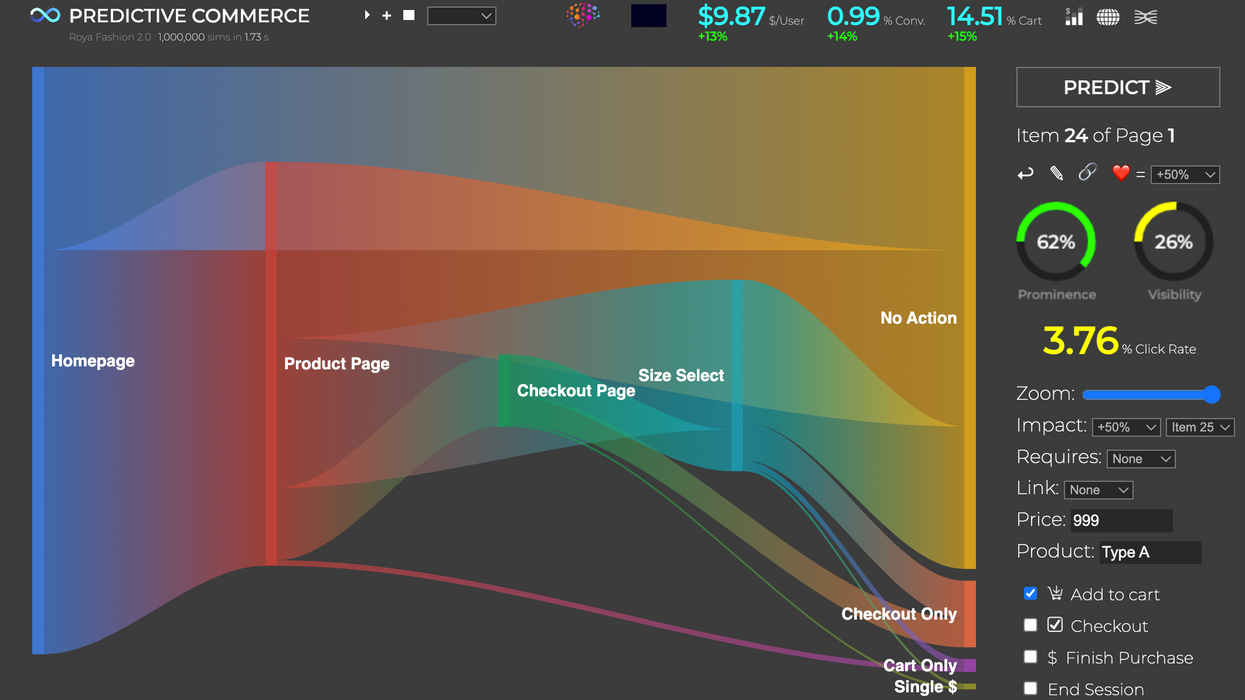By definition, ecommerce employs digital tools to build a shopping experience for the internet. But it’s worth remembering that much of the process of building and designing online stores still requires a human touch.
One area where this plays out is the site optimization process that helps brands and retailers map out the journey that guides a user from the time they click into a site to the checkout. Designers typically use A/B testing, in which different sets of users see certain sets of features and configurations to determine what works.
But this process is still often lacking certainty in results. Often, brands don't run enough A/B testing because they are limited by time and resources, said Parham Aarabi.
Over 15 years working with retailers like Amazon and Sephora to spread adoption of his virtual try-on tool ModiFace and ultimately selling it to L'Oréal, Aarabi saw how the impact of a new feature on conversions could vary by site. On one site, virtual try-on would increase conversions. On others, there would be less.
So the University of Toronto AI professor set out to better understand ecommerce sites by simulating user behavior and how interaction with specific features drove key results.
“The idea was that if you take an ecommerce site and the choices the people make, you always know what impact a choice has – it either takes them to a different page, or adds a product to cart. So that's easy to model,” Aarabi said. “The hard thing is understanding why a user would click on product one versus product two. If you could model user behavior using AI, then we could actually simulate the user journey on the site.”
The result is a new tool that’s designed to help brands and retailers more easily A/B test every element of a site. Predictive Commerce performs tests accounting for a wide variety of actions and choices that people make on a site.
The venture builds a virtual model of an ecommerce site, from the UI elements to the individual pages. It accounts for the size, placement and content of each feature. That includes not just positioning, but also considerations like vibrancy of colors that lead an element to stand out for users.
“We model everything related to the element to the actual click rate that that element has, and then we run this for every single element on the page,” Aarabi said. “And based on this, we can actually [measure], if a user comes on this site, what is the chance that they would click on this image versus this [one] on this UI?”
To determine this, Predictive Commerce runs millions of simulations using AI-generated virtual shoppers to determine conversions, cart rates and revenue per user of each configuration.
In testing on 80 websites, Aarabi said Predictive Commerce had a 94% accuracy rate. By moving faster than human A/B testing, they can also test more types of configurations, increasing the likelihood of arriving at what works best.
“Instead of trying out four or five options, [brands] test 100 options because it's so easy to do,” Aarabi said.
While designing a site or running continuous testing, brands and retailers may go with a gut feel, pick what looks best or even opt for a best practice. But the data may indicate that these options are not actually the best way to drive conversions. Sometimes the optimal journey may look counterintuitive to a human brain. At other times, AI may uncover something designers didn't consider.
Predictive Commerce aims to separate what seems like a good idea from what actually works.













